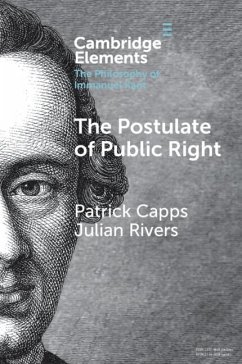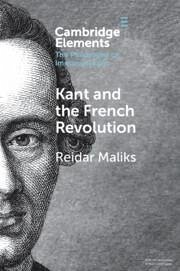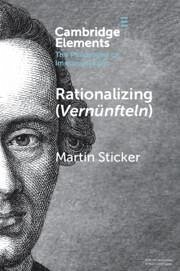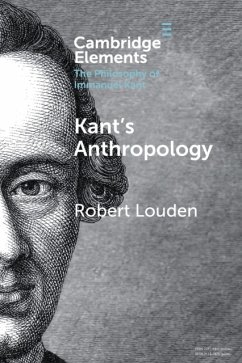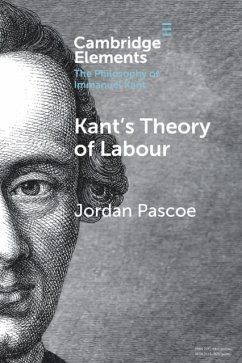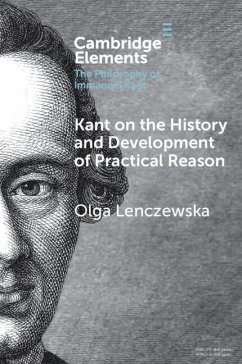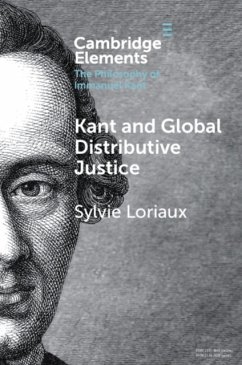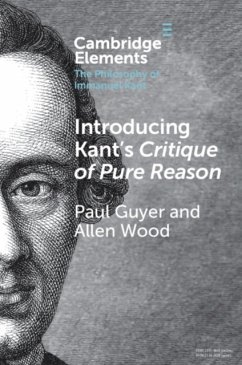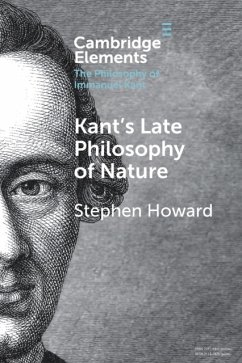
The Moral Foundation of Right
Versandkostenfrei!
Versandfertig in 1-2 Wochen
22,99 €
inkl. MwSt.

PAYBACK Punkte
11 °P sammeln!
In this Element Kant's 'Recht' concept refers to the freedom of individuals to set their own ends, a condition that is consistent with the freedom of all. This rational idea, akin to 'natural Right,' is considered a test for the legitimacy of state laws. Kant's 'Universal Principle of Right' aligns with the foundational idea of moral philosophy.





